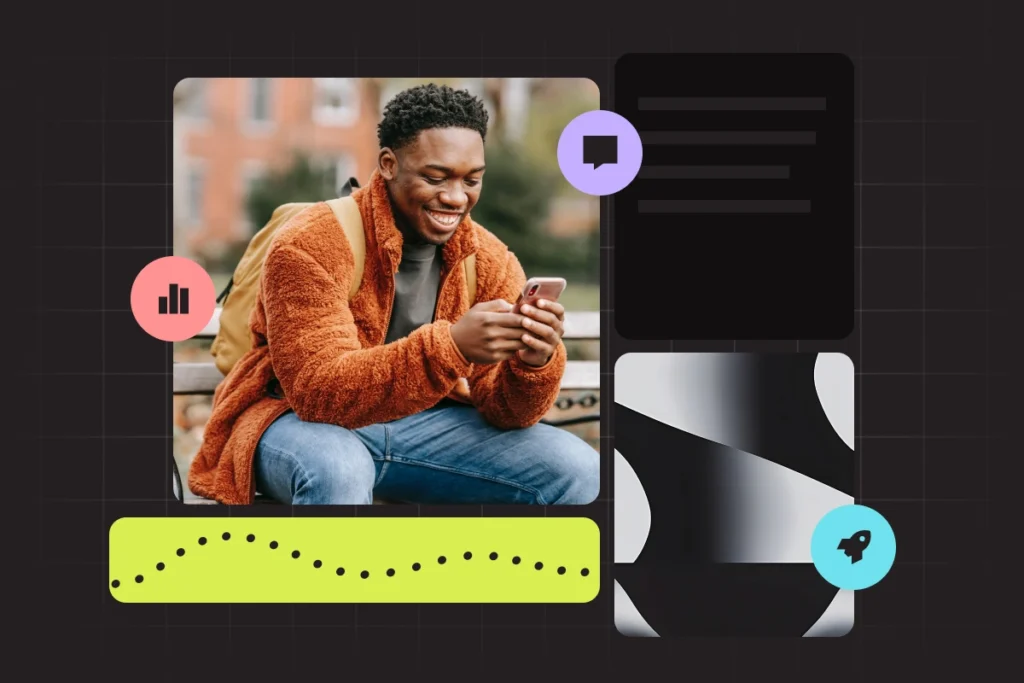PolyAI handles half of all customer service calls without any human help. This conversational AI platform shows remarkable results for banks looking to upgrade their call centers. Banks, telecoms, and insurance companies of all sizes have implemented PolyAI with great success. Companies like SSCL have saved millions on staffing costs thanks to this technology.
The platform stands out from other solutions. Its chatbot technology manages 80% of transaction-related calls without needing human backup. The system runs on machine learning algorithms trained with billions of customer conversations. On top of that, it creates branded AI agents that can have natural, up-to-the-minute customer conversations. The platform’s reliability shines through with 99.9% uptime SLAs on phone lines. Rather than providing DIY tools, PolyAI teams up with clients to build custom voice assistants that reflect their brand perfectly.
This piece gets into how PolyAI delivers concrete results for major banking clients. You’ll find how it blends with your existing systems and see ground case studies that showcase its strengths and limitations.
What is PolyAI and Why Banks Are Using It

Image Source: PolyAI
“Moving away from traditional IVR systems and embracing AI call assistants will enable banks to provide convenient, personalized, and efficient ways for customers to manage their finances in more accessible ways than ever before.” — PolyAI Official Blog, Official company communication, PolyAI
PolyAI is a cutting-edge conversational AI platform that helps businesses automate their voice communications. Companies can now handle customer conversations through AI voice assistants that understand and respond like humans. Banks dealing with high call volumes and staff shortages will find PolyAI changes their customer service approach completely.
PolyAI – Conversational AI for Enterprise Voice Automation
The platform combines natural language processing (NLP), machine learning (ML), and large language models (LLMs) in its technology stack. Customers can speak naturally without dealing with complex menus or button pressing. The system analyzes both text and voice input to understand customer needs and gather needed information.
Banks find PolyAI valuable because it:
- Can handle thousands of conversations at once
- Never stops working – even during holidays
- Sets up voice assistants that manage 50% or more of customer calls within 6 weeks
- Keeps identity verification secure and compliant
Your existing systems won’t need major changes – the platform merges smoothly with your current tech stack. You also get live insights into call patterns and customer issues, which helps your team improve service continuously.
PolyAI Chatbot vs Traditional IVR Systems
Traditional Interactive Voice Response (IVR) systems create problems for banking customers. Callers must fit their problems into preset menus or use specific phrases to get help. This leads to confusion, wrong call routing, and longer waiting times.
The PolyAI chatbot works differently. Customers explain their issues using everyday language instead of navigating restrictive menus. The system knows financial terms, understands urgency levels, and routes calls smartly.
A major UK bank faced these challenges. Their contact center struggled with rising call volumes and couldn’t hire enough qualified agents. After adding PolyAI, customers could explain their needs freely. The voice assistant:
- Made callers feel understood and built trust
- Showed customers self-service options when possible
- Routed calls more accurately
- Cut down total calls
The system can even adjust its tone to show empathy during sensitive conversations.
PolyAI Login and Onboarding Process for Banking Clients
Banks can implement PolyAI quickly and smoothly. While specific login details aren’t mentioned in the sources, the setup process focuses on fast deployment and integration.
The platform gives banks:
- Custom setup completed in about six weeks
- Top-tier security with ISO27001, SOC-2 Type 2, Cyber Essentials, PCI, and HIPAA certifications
- Ready-made and custom integrations for safe, easy implementation
The newest version has Agent Studio, giving businesses full control over their AI agents. You can test and improve conversations, word choices, and tone through a user-friendly web interface.
PolyAI works directly with your team during setup instead of leaving you to figure things out alone. This ensures the voice assistant matches your brand’s voice and handles your specific customer needs well.
Jo Lai, Head of Customer Experience at travel platform Hopper, says: “PolyAI helps us to scale voice support to 100% of our B2C and B2B customers”. Your bank can also automate routine questions, fraud detection, and loan applications.
Reach out to PolyAI to learn how their conversational AI platform can improve your banking call center. The platform has proven results with major financial institutions and offers the right mix of technology and expertise to automate customer interactions while keeping the human touch your customers value.
How PolyAI Works in Banking Environments
PolyAI merges with your banking technology stack to automate customer interactions without disrupting existing systems. The platform connects naturally with your CRM and telephony infrastructure and handles everything from simple questions to complex authentication processes.
CRM and telephony integration with Genesys and Avaya
PolyAI now appears on the Genesys AppFoundry marketplace, making it easier for banking clients to access this powerful voice solution. This integration lets you deploy voice assistants that use state-of-the-art Generative AI and Large Language Models within your existing Genesys environment.
Your Genesys Cloud CX platform works with PolyAI to:
- Process customer interactions in any discipline
- Manage omnichannel touchpoints
- Optimize customer experiences from start to finish
PolyAI’s Avaya integration helps your voice assistants excel at everything in banking environments: listening, reasoning, and speaking. Your customers will experience natural conversations that feel familiar.
Banks using Salesforce or Microsoft Dynamics 365 can use computer telephony integration (CTI) technology to connect these systems to PolyAI. Your agents can:
- Place, answer, and transfer calls without leaving the CRM
- Create cases with a single click
- See caller information right away via screen pops
These integrations help your contact center meet compliance standards through ISO27001, SOC-2 Type 2, Cyber Essentials, PCI, and HIPAA certifications.
Handling KYC, authentication, and account queries
PolyAI excels at knowledge-based authentication (KBA), a vital function for banking call centers. The platform identifies callers using your CRM’s stored information, such as:
- ZIP codes and addresses
- Order or account numbers
- Names and personal details
Your customers have natural conversations during identity verification instead of robotic interactions. PolyAI automates the entire KBA process and handles this traditionally agent-dependent task.
PolyAI lets your customers perform various account transactions through natural language. They can ask questions, make payments, and manage accounts without waiting for human agents. Your voice assistant can:
- Check caller identity through multiple data points
- Process account queries and show balance information
- Handle transaction disputes
- Move complex cases to human agents with full context
This authentication capability helps reduce average handling times by 20-30%, so your team can focus on higher-value interactions.
polyai app deployment in call centers
Your banking call center’s PolyAI implementation follows a well-laid-out approach for quick results. The system handles 50% or more of customer calls in just 6 weeks, unlike other systems that take months to set up.
The process starts when you assemble your implementation team and review your current IVR system. PolyAI conducts a technology audit after securing stakeholder buy-in and setting clear objectives to ensure compatibility with your infrastructure.
PolyAI experts work with your team to:
- Design engaging conversations that adapt to customer needs
- Create smooth handoff processes to human agents when needed
- Develop AI agents that listen, reason, and respond naturally
- Set up SIP or PSTN connections for smooth call routing
PolyAI runs complete tests including quality assurance and load testing before going live. You can pick between a phased or full launch approach based on your comfort level.
The PolyAI platform evolves after deployment. Regular updates to automatic speech recognition, machine learning, and dialog design keep customer experiences high quality. This optimization helps your bank handle call volume changes 24/7/365 without extra staffing investments.
Ask PolyAI today to find how their voice automation can change your banking call center operations while you retain control and improve customer satisfaction.
Top 3 Banking Case Studies Using PolyAI
Polyai has transformed major banking operations worldwide. Their voice assistant technology shows remarkable results through documented case studies that highlight better call handling and returns on investment. Let’s look at three examples that changed banking operations.
Case Study 1: 60% call deflection at a Tier-1 UK Bank
A leading UK bank teamed up with Polyai because they faced rising call volumes and staff shortages. The bank’s original setup couldn’t handle unexpected peaks in demand. This led to 15+ minute wait times and unhappy customers. During quiet periods, they had too many staff members – up to 60% more than needed.
Polyai brought these improvements:
- The voice assistant managed thousands of calls at once
- Customers waited less time
- Fewer people hung up
- The bank used staff better
The system handled 30% of basic calls that agents usually managed. This number grew to 60% as the system learned and got better. The bank could then move its staff to help with complex customer issues.
Danny Penswick, Customer Interaction Center Senior Operations Manager, said: “In the space of 8 weeks, polyai helped us achieve our goal by building and deploying the voice assistant”. The quick setup helped the bank see benefits right away.
Case Study 2: 45% reduction in average call handling time
A financial institution chose Polyai to fix their long Average Handle Time (AHT). Before Polyai, agents spent too much time on simple questions that could be automated.
The chatbot cut 45 seconds from each call. A mid-sized call center handling 10,000 daily calls saved 15,000 minutes (250 hours) each day. This adds up to 91,250 hours saved per year, saving about $1.80 million in agent costs.
The time savings came from:
- Automated FAQs: Polyai’s natural language processing checked account balances in 5-10 seconds
- Intelligent Routing: Calls reached the right specialist in 3 seconds without menu navigation
- Real-Time Data Retrieval: Polyai listened, pulled data, and showed it to agents instantly
These changes helped Polyai handle 30-50% of calls on its own. Simple questions now took 10 seconds instead of 2 minutes.
Case Study 3: 3x ROI in 6 months for a retail banking group
A retail banking group picked Polyai to handle growing customer service needs. The voice assistant proved its worth quickly by delivering 3x return on investment in six months.
UniCredit shows how Polyai affects financial results. The bank used a Croatian voice assistant from Polyai for customized customer service. Their Net Promoter Score (NPS) jumped by 14 points after implementation.
The app helped this banking group:
- Work around the clock, even on holidays
- Handle sudden call increases
- Use fewer staff members
- Make customers happier
John Murphy, Director of Customer Service at Atos (Polyai client), said: “The polyai voice assistant has allowed us to take a lot of people, develop them into more specialist roles, and replace the CIC function with AI”.
The system does the work of 50-95 full-time agents depending on call volume. This equals about 12-23% of a call center’s staff at half the cost.
Get in touch with Polyai to see how your bank can get these results. Whether you want fewer calls, faster handling times, or better returns, Polyai offers proven solutions for banks.
Voice Quality, Latency, and Multilingual Support

Image Source: LiveChatAI
Polyai brings crystal-clear voice interactions that respond quickly to set new AI communication standards in banking. The platform’s voice quality, speed, and language features are a great way to get advantages for financial institutions that want to boost customer experiences through automation.
Up-to-the-minute voice response with <900ms latency
Speed makes a difference in voice AI interactions. Polyai hits response times between 700-900ms in banking deployments. This shows good performance but doesn’t reach the ideal sub-500ms measure that removes all noticeable delays. Still, Polyai keeps conversations flowing smoothly in most banking scenarios.
Customers experience these response times in different ways:
- Standard questions get smooth, quick responses
- Complex financial talks stay natural with brief pauses
- High-pressure situations might show the sub-second delay
From a technical view, latency substantially affects how customers perceive the system. Delays near one second can create awkward pauses that break natural conversation flow. Polyai handles this challenge with exceptional voice quality that keeps customers involved despite the millisecond gap.
The platform keeps getting better at this through constant optimization. Every banking deployment automatically gets these improvements without extra setup or upgrades.
Polyai AI voice agents supporting 12+ languages
Polyai supports over 12 languages right from the start, making it perfect for international banking operations. Banks can serve customers who speak different languages using one platform instead of running separate systems.
The platform’s language-agnostic design gives it a big advantage: voice assistants work in different languages without rebuilding their core structure. After you succeed in your main market, expanding to new language regions needs little extra investment.
Right now, Polyai handles these language features:
- Core conversation functions in all supported languages
- Natural understanding of various accents and dialects
- Background noise filtering for clear understanding
Custom enterprise agreements let you fine-tune regional variants and dialects. Banks working in multiple countries or regions with unique language patterns can tailor voice interactions exactly how they need them.
Custom voice branding for financial institutions
Your brand’s voice comes through when customers call. Polyai creates custom voices that perfectly match your banking brand. Users love Polyai’s lifelike voice assistants that don’t sound robotic.
Your financial institution gets:
- Custom voices that match your brand’s personality
- The same tone in all customer interactions
- Natural, authentic-sounding communication
This builds trust between customers and the AI system. Banking reviews on G2 and Capterra point out how authentic, warm, and believable the voices sound. Polyai agents also handle topic changes, interruptions, and emotional hints better than most other systems.
Polyai helps your institution create a unique voice that customers know and trust. This feature becomes vital in financial services where trust builds customer relationships.
Reach out to Polyai today to hear their superior voice quality yourself. Their team will show you how custom voice branding can improve your banking operations while keeping the human touch your customers want.
Limitations and Challenges Faced by Banking Teams

Image Source: LinkedIn
Polyai has impressive capabilities but creates several operational challenges for banking implementation teams. Your technical staff will face specific limitations with this platform.
No no-code builder or testing sandbox
Polyai lacks the development tools that most modern AI platforms provide. Your development team won’t have access to visual flow builders or a no-code interface to make adjustments. The platform doesn’t have a live LLM sandbox environment to test conversation flows before deployment. These limitations force your banking staff to:
- Depend on polyai’s team for changes
- Deal with longer update implementation times
- Miss rapid prototyping opportunities
- Create custom testing layers on top of existing APIs
Developers get API access for integration and logging but can’t test new flows on their own or maintain version control for prompts. Teams find it harder to improve agents weekly or run A/B tests across workflows.
Limited analytics and prompt-level control
Polyai provides simple dashboards with call data and performance summaries, but the analytics capabilities don’t meet detailed optimization needs. Banking teams find these insights useful yet need better voice analytics. The platform shows limited insights into client sentiments and conversation details that could help improve communication approaches.
The platform lacks team-level permissions, content versioning features, and fallback visualizations. Teams can’t track changes or manage access between different banking departments using polyai online.
polyai online updates require account manager support
Your polyai chatbot modifications must go through account management. This creates delays when banking teams need to adapt to market changes quickly. Teams end up waiting for support or developing workarounds.
The support structure works best for large accounts, while smaller teams get less attention. Support tickets move through internal channels without SLA guarantees unless specifically negotiated. This setup works for institutions that have dedicated polyai contacts but creates bottlenecks for banking teams that need faster iterations.
Reach out to polyai to learn about how these limitations might affect your banking implementation.
How PolyAI Compares to Retell AI and Synthflow
A comparison between polyai and its competitors can help you pick the right voice AI solution for your banking needs. Each platform tackles customer service challenges through voice automation differently.
polyai vs retell ai: managed vs self-serve
Polyai operates as a managed service. Your team works directly with the company to design, build, and implement voice assistants that match your specific needs. The platform takes a concierge-level approach by creating custom voice personas, designing conversation flows, and handling system integrations.
Retell AI takes a different path with its Figma-style builder platform that enables teams to create and modify voice agents on their own. This self-service model gives you complete control over:
- Voice agent development without external experts
- Rapid experimentation and iteration
- Quick adjustments as business needs evolve
Your team and polyai collaborate to create the agent, but their voice assistants handle only about 50% of calls successfully. Retell AI puts the tools in your hands and lets you deploy solutions within days instead of weeks.
polyai vs synthflow: latency and pricing differences
Response times for polyai range between 700-900ms. These numbers look good but don’t match Synthflow’s sub-500ms latency that removes noticeable delays in conversation. Banking customers notice this difference during their calls.
Polyai keeps its pricing private—you need to ask for a custom quote. Most contracts begin at USD 150K per year for full-scale deployment. Synthflow shows its pricing upfront, starting at USD 0.08 per minute without extra fees for multilingual support or analytics. Teams can start building with annual budgets as low as USD 30K.
Which platform suits agile banking teams?
Agile banking teams face several hurdles with polyai. The platform lacks a no-code interface and live LLM sandbox for testing. Teams need account management approval for every change, which slows down A/B testing and weekly agent improvements.
Synthflow lets teams build agents visually with live testing. Your team can update prompts and push changes without coding or external help. Retell AI also provides a low-code platform that puts you in control instead of waiting through long implementation cycles.
Reach out to polyai if you want a managed approach with enterprise-grade security. Banking teams that need agility and control might find self-service platforms more suitable for their innovation goals.
Conclusion
PolyAI helps banks solve their customer service challenges. This conversational AI platform delivers real results by handling up to 60% of calls without human help. Major banks report triple their investment returns within six months and cut down their average handling time.
The platform’s edge lies in its natural language abilities. Customers can speak freely instead of working through menu options. The system works smoothly with existing banking platforms like Genesys and Avaya. While it lacks a no-code builder and needs account managers for updates, PolyAI brings better results than traditional IVR systems.
Banks can use PolyAI to handle KYC processes, authentication, and account questions. The platform keeps your brand voice consistent across more than 12 languages. Financial institutions using PolyAI have seen remarkable changes – 60% fewer calls reach agents and handling times drop by 45%.
Banks looking for enterprise-grade security and expert setup will find PolyAI’s managed approach valuable. Slow websites drain businesses of $2.6 billion yearly. A single second of delay can drive visitors away. That’s why at Mehnav, we create fast, mobile-ready, secure websites that catch attention.
PolyAI can revolutionize your call center with proven AI technology. The system runs reliably with 99.9% uptime SLAs and processes thousands of conversations at once. Reach out to PolyAI to learn how their voice assistants cut staffing costs while keeping your customer service personal.
Key Takeaways
PolyAI delivers proven results for banking institutions, with real case studies showing 60% call deflection rates and 3x ROI within six months of implementation.
• Impressive automation rates: PolyAI handles 50-80% of banking calls without human intervention, reducing staffing costs by millions while maintaining 99.9% uptime.
• Rapid deployment with enterprise security: Banks can deploy voice assistants in just 6 weeks with ISO27001, SOC-2, PCI, and HIPAA certifications for compliance.
• Natural conversation capabilities: Unlike traditional IVR systems, PolyAI allows customers to speak freely in 12+ languages with <900ms response times.
• Seamless system integration: The platform connects directly with existing CRM and telephony systems like Genesys and Avaya without disrupting current operations.
• Managed service limitations: PolyAI requires account manager support for updates and lacks no-code builders, making it less suitable for agile teams needing frequent changes.
For banking institutions prioritizing enterprise-grade security and proven results over self-service flexibility, PolyAI offers a compelling managed solution that transforms customer service operations while maintaining compliance standards.
FAQs
Q1. What is PolyAI and how does it benefit banks?
PolyAI is an advanced conversational AI platform designed for enterprise voice automation. It benefits banks by handling up to 60% of customer service calls without human intervention, reducing staffing costs, and improving customer experience through natural language interactions.
Q2. How quickly can PolyAI be implemented in a banking environment?
PolyAI can create and deploy voice assistants that handle 50% or more of customer calls in as little as 6 weeks. The implementation process is designed for rapid results while ensuring seamless integration with existing banking systems.
Q3. What languages does PolyAI support?
PolyAI supports over 12 languages out of the box, making it suitable for international banking operations. The platform’s language-agnostic architecture allows voice assistants to be easily adapted to different languages without rebuilding their underlying structure.
Q4. How does PolyAI handle security and compliance in banking?
PolyAI offers enterprise-grade security with ISO27001, SOC-2 Type 2, Cyber Essentials, PCI, and HIPAA certifications. It can securely automate identity verification and handle sensitive banking transactions while maintaining compliance standards.
Q5. What are the limitations of PolyAI for banking teams?
PolyAI lacks a no-code builder and testing sandbox, which can limit rapid prototyping. It also requires account manager support for updates and offers limited analytics capabilities. These factors may pose challenges for agile banking teams seeking frequent iterations and detailed insights.

